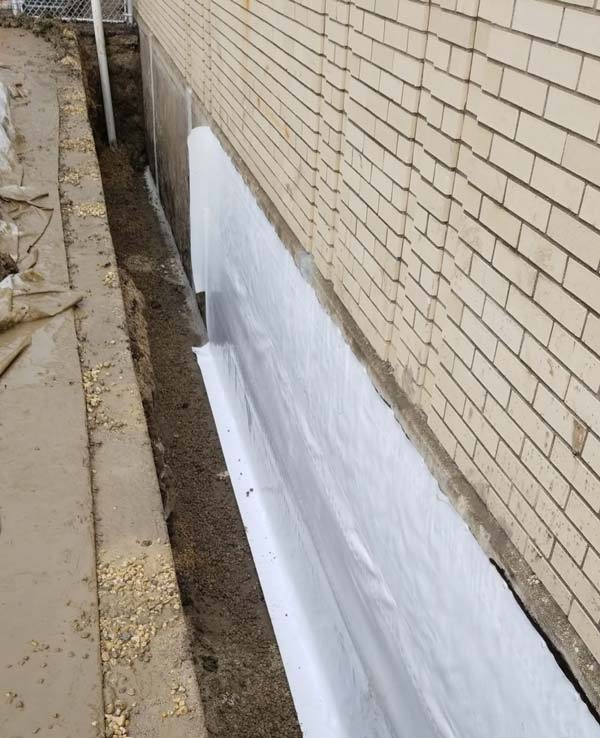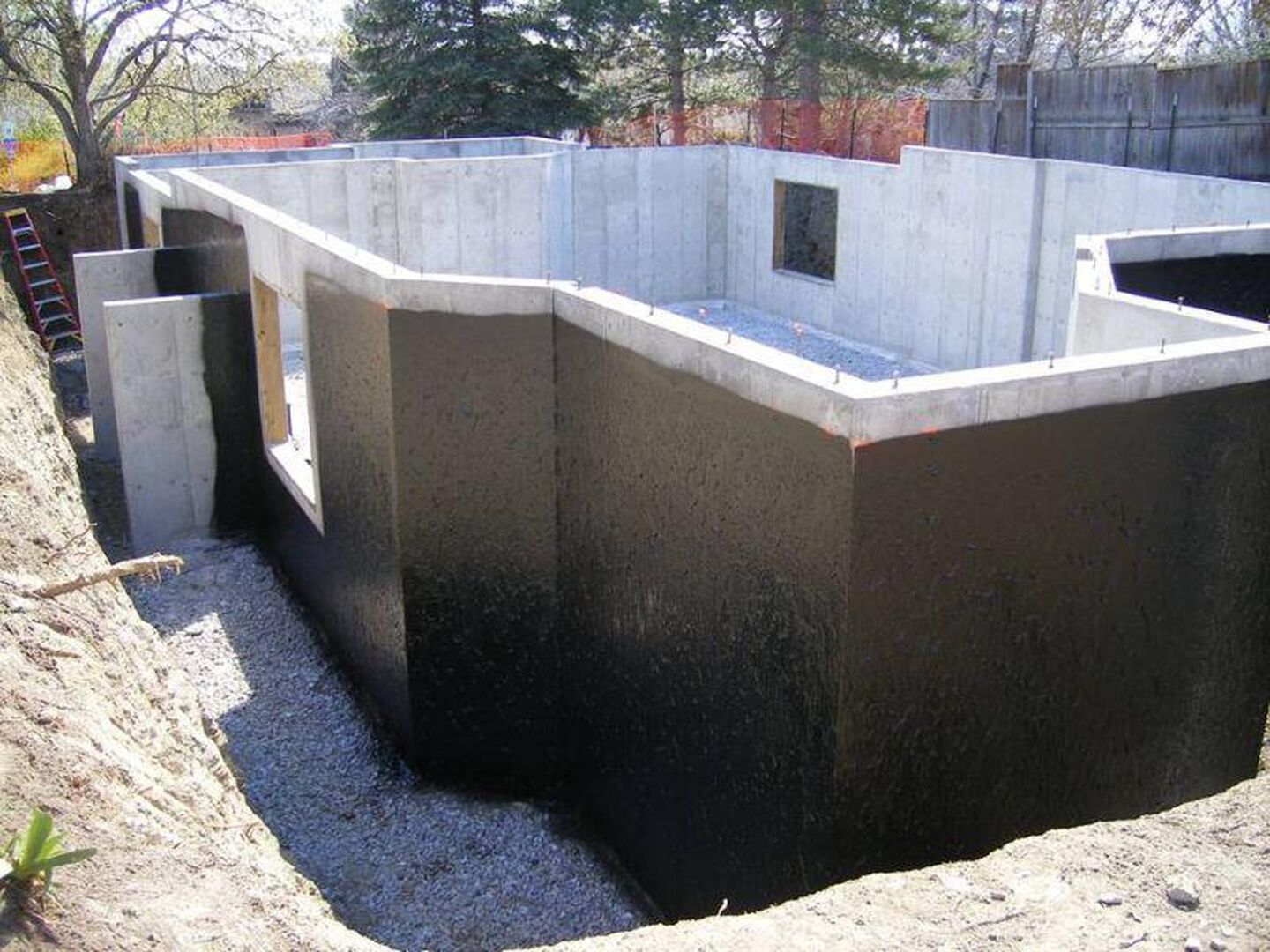Checking Out the Different Techniques of Cellar Waterproofing and Their Advantages
Basement waterproofing is necessary for keeping a stable and dry environment. Different approaches exist, each with distinct advantages. Inside sealants shield versus dampness breach, while exterior systems deal with drain concerns. Sump pumps and French drains pipes take care of water properly, and dehumidifiers regulate moisture degrees. Recognizing these options can help property owners make informed decisions. Yet, the appropriate option frequently relies on certain conditions and needs. What aspects should one consider when picking the finest approach?
Inside Sealants: An Effective Obstacle Versus Wetness
Inside sealants offer as a crucial line of defense versus moisture invasion in basements. These products are made to produce a water-proof barrier on walls and floorings, properly protecting against water from leaking in. Offered in numerous forms, including paints, sealers, and coatings, they can fill fractures and pores in concrete, ensuring a more secure environment.The application procedure normally includes cleaning the surfaces to get rid of dirt and particles, followed by the cautious application of the sealer. When healed, these items enhance the sturdiness of the basement while minimizing moisture levels, which can result in mold and mildew growth and structural damage.Moreover, indoor sealers are typically very easy to apply and can be an economical option for homeowners wanting to minimize moisture issues. By supplying a reliable layer of protection, they play a crucial duty in safeguarding the basement area, preserving both its stability and functionality.
Outside Waterproofing Equipments: Securing Your Structure
Outside waterproofing systems use a robust option when property owners look for to secure their foundations from water damages. These systems generally include applying water resistant membranes and water drainage systems to the exterior walls of a basement. By developing a barrier versus groundwater, they efficiently protect against moisture from passing through the foundation (Water Solutions).One remarkable advantage of exterior waterproofing is its capacity to deal with the resource of water breach before it gets to the inside. This positive method not just safeguards architectural stability but likewise enhances the longevity of the home.Moreover, exterior systems can enhance the general drainage around the structure, decreasing hydrostatic stress. This decreases the opportunity of splits and heaving that can arise from water buildup. As an outcome, property owners can take pleasure in a completely dry, stable basement atmosphere, substantially boosting home worth and convenience. Inevitably, outside waterproofing systems are an important investment in maintaining a healthy home foundation
Sump Pumps: Handling Water Build-up Effectively
Sump pumps play a crucial role in handling water build-up in basements, supplying an efficient option for homes vulnerable to flooding or excess dampness. These tools are mounted in sump pits, generally located at the most affordable point of a basement, where they collect water that seeps in from the surrounding soil. When the water degree climbs, the sump pump turns on, effectively draining the excess water to an assigned water drainage location, consequently stopping prospective damage to the foundation and interior spaces.There are 2 major kinds of sump pumps: completely submersible and stand. Submersible pumps are installed undersea, making them much less visible and frequently quieter, while pedestal pumps are positioned over the sump pit and are simpler to maintain. By properly taking care of water build-up, sump pumps not only guard versus structural damages however additionally add to a much healthier living setting by lowering moisture degrees and stopping mold and mildew development.
French Drains: Redirecting Water Far From Your Home

Dehumidifiers: Lowering Moisture Degrees for a Drier Atmosphere
Basement waterproofing involves various approaches, and dehumidifiers play a considerable duty in preserving a completely dry environment. By properly decreasing moisture levels, dehumidifiers aid stop moisture accumulation, which can bring about mold and mildew development, structural damage, and undesirable smells. These devices work by drawing out excess dampness from the air, producing a much healthier and a lot more comfortable space.In addition to boosting air high quality, dehumidifiers can enhance the efficiency of other waterproofing approaches, such as securing and drainage systems. They help preserve perfect humidity degrees, normally in between 30% and 50%, which is essential for avoiding condensation on wall surfaces and floors.Moreover, modern dehumidifiers are energy-efficient and come with functions like programmable setups and automated shut-off, making them user-friendly. Overall, integrating a dehumidifier into basement waterproofing prepares gives a vital layer of protection versus moisture-related concerns, thus securing the home's integrity.
Regularly Asked Questions

For How Long Do Waterproofing Solutions Commonly Last?
Waterproofing services generally last between 5 to two decades, depending on the approach utilized, high quality of products, and ecological conditions. Normal upkeep and assessments can assist extend their performance and overall life-span.
Can I Waterproof My Basement Myself?
The specific thought about whether to waterproof the basement separately. They found that while do it yourself choices exist, understanding of products and techniques is necessary to guarantee efficiency, and specialist aid might offer better long-term outcomes.
What Are the Indications of Cellar Dampness Issues?
Indicators of basement dampness problems include noticeable water discolorations on walls, musty smells, peeling paint, mold and mildew growth, and dampness on floorings. High moisture degrees might additionally show underlying dampness issues calling for interest to avoid more damages.
Just How Much Does Basement Waterproofing Cost?
The price of cellar waterproofing varies extensively, usually ranging from $1,500 to $5,000. Variables influencing expenses include the severity of moisture issues, the chosen approach, and the geographical place of the residential or commercial property.
Will Waterproofing Increase My Home's Value?
The concern of whether waterproofing enhances a home's worth usually develops amongst home owners. Typically, efficient waterproofing can improve residential property appeal, minimize damages risks, and possibly result in greater resale costs, depending on the local realty market. By developing an obstacle against groundwater, they effectively stop moisture from penetrating the foundation.One notable benefit of outside waterproofing is its ability to address the resource of water intrusion prior to it gets to the inside. Sump pumps play an essential function in taking care of water build-up in basements, offering an efficient option for homes susceptible to flooding or excess wetness. When the water level rises, the sump pump turns on, efficiently pumping out the excess water to a designated drain location, therefore protecting against potential damages to the structure and indoor spaces.There are 2 main types of sump pumps: submersible and pedestal. Sump Pump Installation And Replacement. By routing groundwater and surface water away from the foundation, French drains pipes assistance stop water accumulation in basements and creep areas, lowering the risk of architectural damages and mold growth.Installation typically happens around the border of the home, guaranteeing that water is efficiently diverted. Indicators of cellar moisture issues include noticeable water discolorations on wall surfaces, musty smells, peeling off paint, mold growth, and moisture on floors